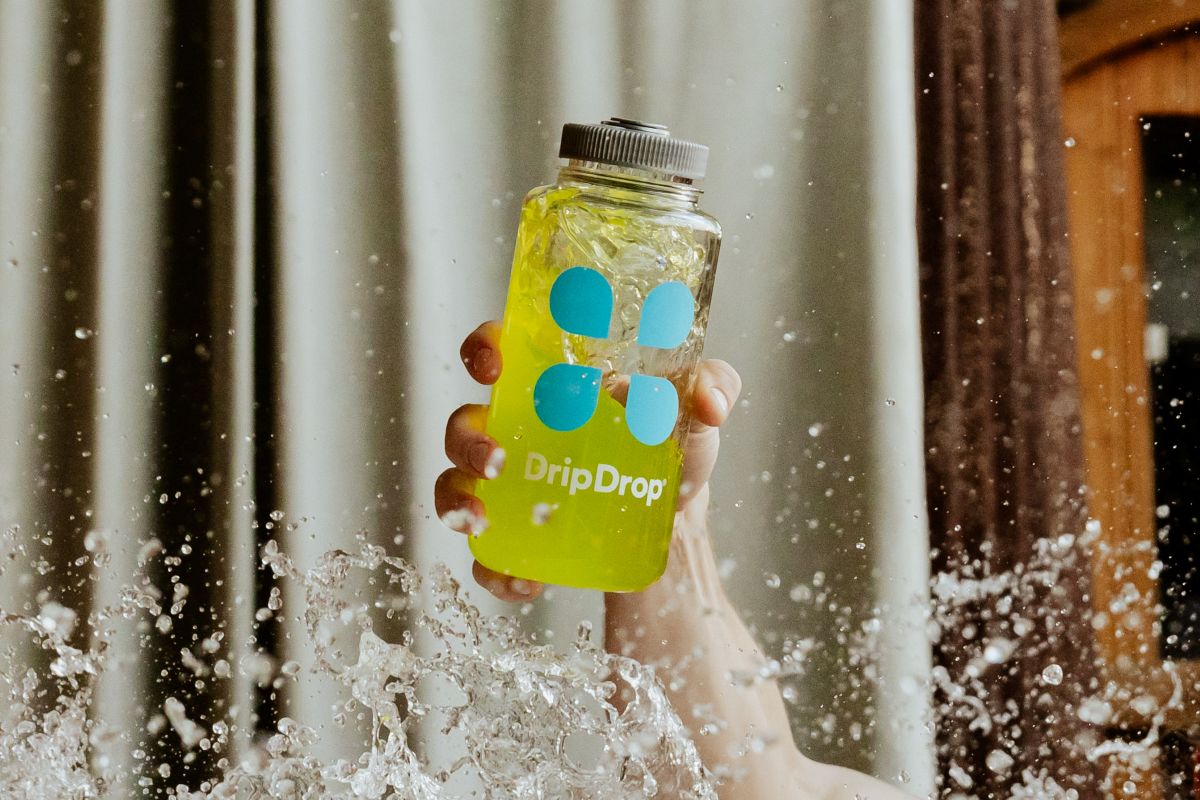Is water an electrolyte? This may sound like a simple question, but it’s not so simple to answer. This is in part because the word “electrolyte” has more than one meaning, and where water fits in depends on our understanding of these meanings.
All of the essential minerals in our diets, including potassium, chloride, magnesium, calcium, and phosphate, are considered electrolytes. As such, it is beneficial to know a little bit about them, especially since many of us do not consume enough of them. Water can also be considered a type of electrolyte, putting it in the same category as essential minerals.
Read on to learn about how water can be considered an electrolyte, the role that water and electrolytes play in our diets, their health benefits, and how they relate to dehydration.
What Are Electrolytes?
Electrolytes are minerals that dissolve in water. More specifically, they dissolve into cations (positively-charged ions) and anions (negatively-charged ions) in water, or in any aqueous solution (a solution in which water is the solvent). When dissolved in water, they create an ionic solution, i.e., a fluid containing ions.
Electrolytes are further categorized into “strong electrolytes” and “weak electrolytes.” The essential minerals in our diets – potassium, chloride, etc. – are all strong electrolytes. Strong electrolytes used to be defined by their conductivity in water, i.e. any chemical that will conduct electricity in water. However, the term nowadays more generally refers to any chemical that fully dissolves in water. By contrast, a weak electrolyte is a chemical that only partially dissolves in water.
By this definition, water can be considered a weak electrolyte. Water partially dissolves into positively charged hydrogen ions and negatively charged hydroxide (hydrogen and oxygen) ions, but most water molecules stay intact. Understood in this way, we can see how water relates to other electrolytes.
As you may have noticed by now, water is not easy to classify. In some ways, it is in its own category. Part of the reason water ends up in its own category is because hydration status has long been considered separate from diet, in the same way that thirst is separate from hunger. In this sense, it may be beneficial to think of water as an essential mineral or electrolyte, given that both water and electrolytes are necessary for hydration.
However we want to categorize it, what matters is that water is an essential nutrient, and we need it with relatively small amounts of other electrolytes for effective hydration.
Health Benefits of Electrolytes
Electrolytes have many health benefits, given that they are an essential component of our hydration and necessary for many bodily functions.
Sodium, potassium, magnesium, and chloride are all considered macrominerals, because our bodies need more of these than of most other minerals. These electrolytes are crucial for maintaining our fluid balance, metabolism, blood pressure, muscle function, and nerve function. If we don't have enough of these electrolytes, or if we have too much of some and not enough of others, we can experience electrolyte imbalance, which has the potential to be life-threatening.
Trace minerals are minerals that are needed in even smaller amounts, such as zinc. It is important to understand that just because our body needs a smaller amount of trace minerals doesn’t make them any less essential. Zinc is essential for addressing infection and inflammation and plays a crucial role in wound-healing.
Note that DripDrop contains all of the above electrolytes – sodium, potassium, magnesium, chloride, and zinc – in the appropriate ratios to address dehydration.
Water, Electrolytes, and Dehydration
As you’ve already seen by now, water and electrolytes are intimately tied to dehydration. It is almost impossible to talk about water and electrolytes together without talking about hydration. While water may be considered an electrolyte, staying hydrated is a matter of combining water with other electrolytes. These nutrients work together as the basic components of all of your body fluids, so it makes sense that they need to be replenished with fluids.
We can become dehydrated for any number of reasons. Hot weather, physical activity, illness, and sweating are all potential causes of dehydration. We can also become dehydrated by simply going too long without drinking, or by consuming too much of some other nutrient (such as sugar).
Whatever the cause of our dehydration, what matters is that we need more than pure water to replace what we’ve lost in order to keep our electrolyte levels balanced.
When it comes to choosing a beverage with electrolytes, it is important to consider the amounts and ratios of the electrolytes as well as the amount of sugar and other sweeteners that are usually added for flavor.
Sports drinks contain electrolytes, but they also tend to have too much sugar. Coconut water is often touted as a healthier alternative to sports drinks, but it also contains a lot of sugar, and it doesn't have enough electrolytes besides potassium. Oral rehydration salts may seem like a better option, but most taste awful and just aren’t practical, especially for young children.
DripDrop's formula has medically relevant levels of the essential electrolytes needed for rehydration, the right amount of glucose to activate the sodium-glucose cotransport system, and a variety of great-tasting flavors that even kids will enjoy. It is by far the best option when it comes to nutrition and taste.
Use DripDrop to Crush Dehydration
When it comes to our diets, drinking water alone is not enough to keep us hydrated, given that our body fluids require a variety of other electrolytes. Sports drinks may seem like a natural solution, as they are fortified with electrolytes, but they also contain an unhealthy amount of sugar. DripDrop's formula contains half the sugar and three times the electrolytes of typical sports drinks, making it a much more effective choice for managing dehydration without the added junk. Additionally, for those looking for dehydration relief without the sugar, DripDrop offers DripDrop Zero, a zero sugar option.
DripDrop was invented by a doctor on a relief mission to treat life-threatening dehydration. Powerful enough to be used in extreme circumstances but safe enough to be used every day, it is a proven alternative to IV therapy for mild to moderate dehydration. It exceeds the WHO oral rehydration solution standards, works fast, and tastes amazing.
The convenient packaging makes DripDrop easy to have where you need it, when you need it. Keep a few packets wherever you go throughout the day, in your car, in your bags, even in your pockets. Simply add it to water whenever you feel (or anticipate feeling) yourself becoming dehydrated.
Get started with our most popular multi-flavor pouch for dehydration relief fast. Or, learn more about how you can save up to 25% on every purchase when you subscribe.














